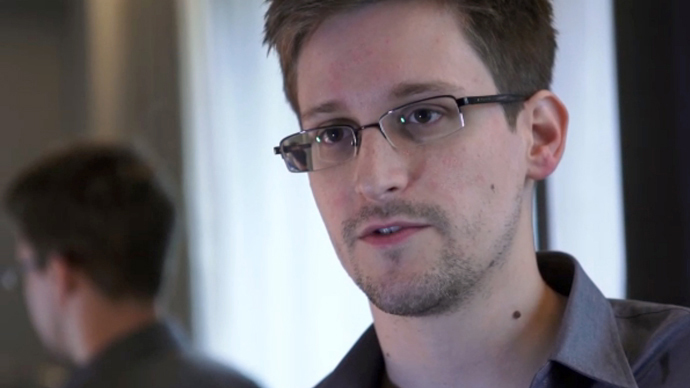A fierce debate about Internet privacy and the limits of US executive power erupted on Tuesday, in a victory for the young intelligence technician at the center of a global leak storm.
While 29-year-old Edward Snowden has gone to ground in Hong Kong and may yet face legal action for blowing the lid on Washington's vast Internet snooping program, he has triggered the public battle he said he wanted.
A bipartisan group of US lawmakers, civil liberties groups and even one of the web giants accused of collaborating with the intelligence sweep separately urged President Barack Obama's administration to lift the veil of secrecy.
"We can't have a serious debate about how much surveillance of Americans' communications should be permitted without ending secret law," said Jeff Merkley, one of eight senators proposing a bill to increase transparency.
"Americans deserve to know how much information about their private communications the government believes it's allowed to take under the law," he said, arguing this could be done without "tipping our hand to our enemies."
Snowden's leaks to the Guardian and Washington Post newspapers published last week revealed PRISM, a top secret program of the US National Security Agency to collect and analyze data from Internet users around the world.
US intelligence chiefs insist the sweep has saved American lives by helping agents thwart terror plots, and authorities have opened an investigation that could see the contractor extradited from Hong Kong to face charges.
But many inside and outside the United States were outraged by the breadth and secrecy of the operation, which was carried out under the broad brush terms of the Foreign Intelligence Surveillance Act (FISA) and the Patriot Act.
Under these, Internet companies like Google, Facebook and Apple have been obliged to secretly provide customer data to the NSA when ordered to do so by the secret FISA court, and last week's leak embarrassed the web giants.
On Tuesday, Google wrote to the US Justice Department asking for permission to release figures on its surrender of data to surveillance programs in order to head off reports it has given the government a back door to its servers.
The letter, signed by Google's chief legal officer David Drummond, said: "Assertions in the press that our compliance with these requests gives the US government unfettered access to our users' data are simply untrue."
Human Rights Watch executive director Kenneth Roth warned other governments could "see US practice as a green light for their own secret surveillance programs," tarnishing US credibility on the issue of Internet freedom.
Separately, a coalition of Internet and rights groups including the Mozilla Foundation, American Civil Liberties Union (ACLU), Greenpeace USA, the World Wide Web Foundation and more than 80 more also demanded more openness.
The groups launched a website, StopWatching.us, and called on Congress to launch a full investigation.
"We don't want an Internet where everything we do is secretly logged and tracked by government," said Alex Fowler, head of privacy and public policy for Mozilla, which produces the Firefox browser.
The ACLU also launched a separate law suit alleging that another spy program unveiled by Snowden, one in which the phone records of millions of US citizens were seized, was unconstitutional.
But the debate about PRISM -- and about Snowden's actions -- is not one-sided. Popular daily USA Today summed up the Snowden question neatly in its front page headline: "A hero, or is he a traitor?"
Obama's spy chief, Director of National Intelligence James Clapper, has described the leaks as gravely damaging, and inquiries are under way by both the Justice Department and the intelligence community.
"There is a review of how these leaks may have damaged important intelligence community programs," a US intelligence official told AFP. "The Office of the National Counterintelligence Executive is coordinating the review."
While Democratic Senator Dianne Feinstein, the head of the Senate intelligence committee, branded the leak an "act of treason," White House spokesman Jay Carney refused to say whether Obama saw Snowden as a traitor.
"I won't characterize him or his status. We believe it is the appropriate posture to take to let the investigation move forward," Carney said.
Snowden, a technician working for the private defense contractor Booz Allen Hamilton, traveled from Hawaii to Hong Kong on May 20 with a cache of secrets harvested from NSA servers, according to the Guardian newspaper.
He gave a video interview to the Guardian in a hotel to explain his motives but has since checked out and his location is a mystery, although the paper's Washington bureau chief said he was still in the southern Chinese city.
Snowden told the Guardian he could not "allow the US government to destroy privacy, Internet freedom and basic liberties for people around the world with this massive surveillance machine they're secretly building".
Under PRISM, according to the leaked documents, the NSA can issue directives to Internet firms to gain access to private emails, online chats, pictures, files, videos and more, uploaded by foreign users.






















































